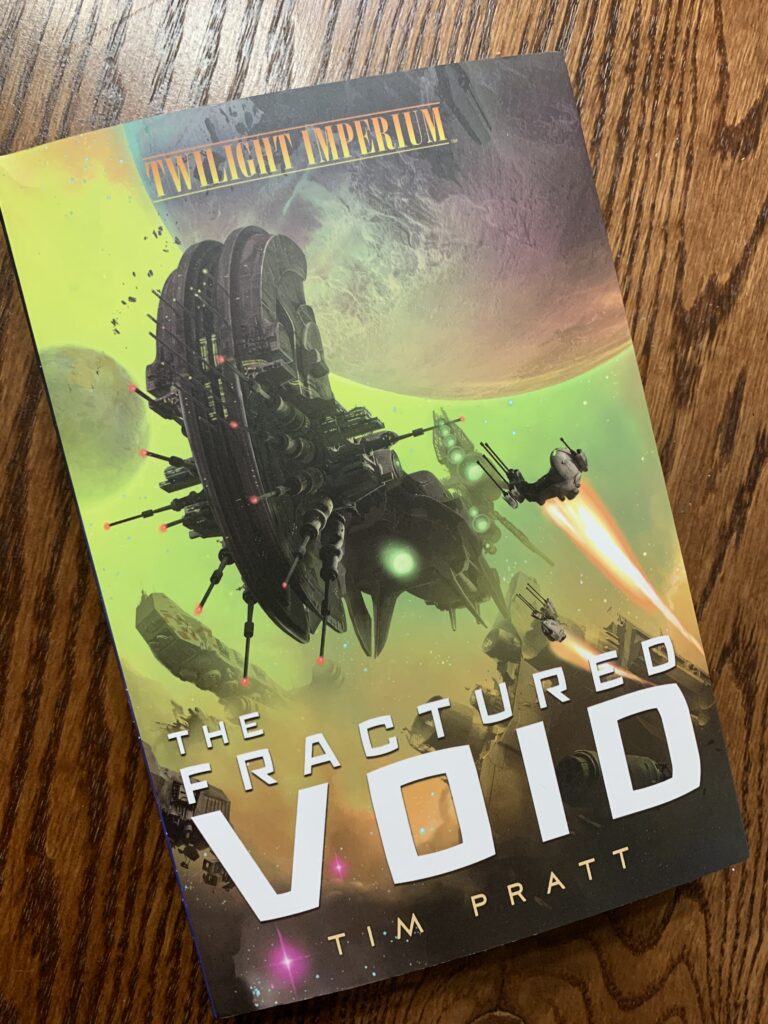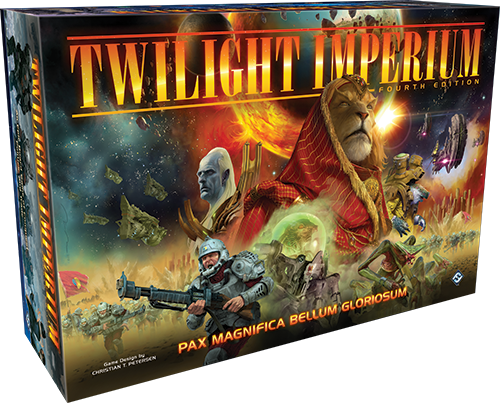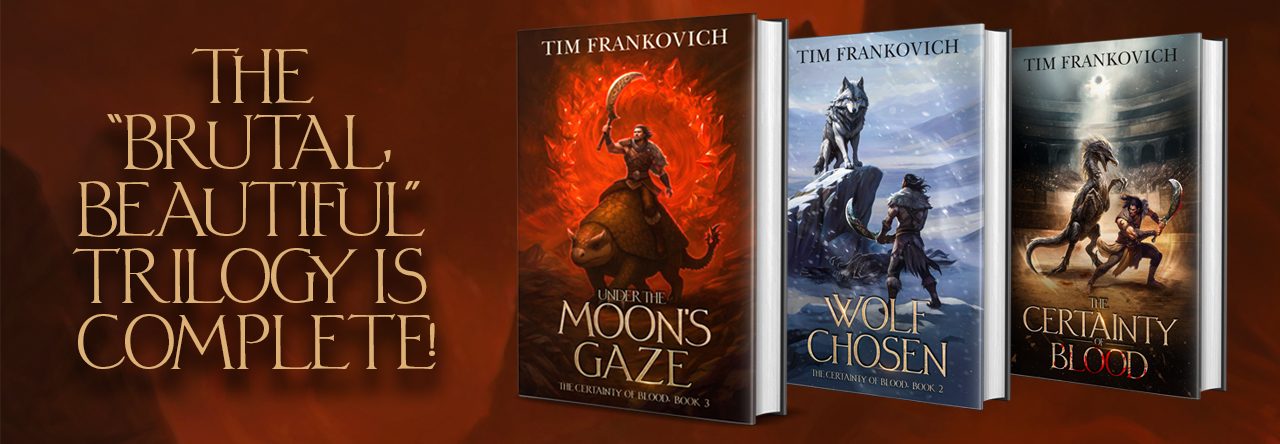
Outside of reading and writing, my favorite pastime is tabletop board games. And my favorite game is Twilight Imperium. It’s a massive epic of negotiation, trade, politics, and space ships shooting at each other. A four player game will probably last five hours minimum. A six player game can go all day (or night)… Some people complain about this. I see it as a feature.
Why? Because like all my favorite games, Twilight Imperium tells a story. And when we’re loving a story, we don’t want it to end.
Recently, Fantasy Flight Games, creators of Twilight Imperium (and many, many other games), started a new push to expand their own brands. They do a lot of licensed material with Star Wars and Marvel, etc., but some of their best stuff comes from these universes they’ve invented on their own. Like Twilight Imperium. So they’ve been launching new expansions to the games, working on role-playing modules set in those universes, and even commissioning novels.
Licensed novels written about an existing universe are nothing new. You can easily find dozens of novels based on Star Trek, Star Wars, Dungeons & Dragons, and just about any other fantasy or science fiction property you’ve heard of. Novels based on Twilight Imperium are interesting, though, in that there are no movies, TV shows, or cartoons in existence already (but we can hope).

The game itself is chock-full of lore (or world-building, or whatever you wish to call it). Players choose between seventeen different alien civilizations to start a game (seven more in the expansion). Each one of those civilizations has various in-game special abilities, starting units, and so on, but on the flip side of those large game placards is an extensive history of that civilization.
Consequently, when FFG hired Hugo-award-winning novelist Tim Pratt to write the first novel in the Twilight Imperium universe, he had a lot to work with. So… how did he do?
The Fractured Void is a space opera (it even says so on the cover!). In other words, it’s closer to Star Wars than Star Trek. Less “if we reverse the polarity on the tachyon beams…” and more “fire everything!” In other words, not a lot of really detailed explanation of the “science” in the science fiction. And that’s just fine.
It’s a fast-paced adventure that pauses every so often for a bit of an info dump. Those info dumps, while somewhat necessary, are sometimes delivered a little bit too blatantly. “Well, I did hear from a cousin’s friend once that…” On the other hand, for fans of the game itself, those info dumps are some of the most entertaining bits, because we get to read more about these alien civilizations that we enjoy playing in the game.
The story includes all sorts of space hijinks, like you might expect. Prison breaks, heists, and so on. There’s surprisingly very little actual space combat (which could also be said for the game itself). The plot line consists of a lot of “Oh, we need to rush over here for this reason,” and “Oh, wait, now we must rush to this place for this other reason.” Yeah, you’ve seen it in the Star Wars movies and similar fiction.
That doesn’t mean it’s bad. It’s just… all right. The most enjoyment I got from it was comparing it with what I know of Twilight Imperium. For anyone who’s never played the game, it would be… all right, I guess.
My biggest nitpick is one I have with a lot of modern speculative fiction: why would people (aliens, for the most part) in a distant galaxy or our galaxy thousands and thousands of years in the future… use the exact same curse words we do today? It makes no logical sense and yanks me out of the story every single time. It’s a pet peeve. Maybe it won’t bother you. In addition, a common trope used with the primary antagonist was a bit annoying.
My biggest thrill was seeing how the finale of the novel ties in with the story of the new expansion to the game, Prophecy of Kings. Yep, I’m a nerd.

Pantelis
Nice review! Thanks. It’s Twilight Imperium. I’ll love it.